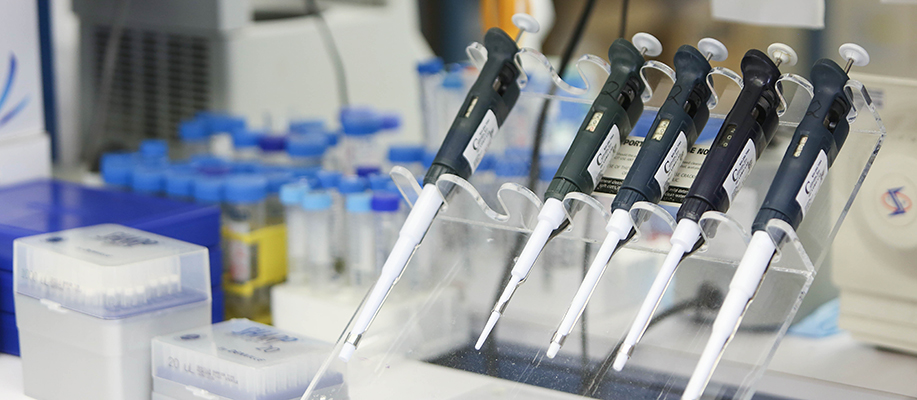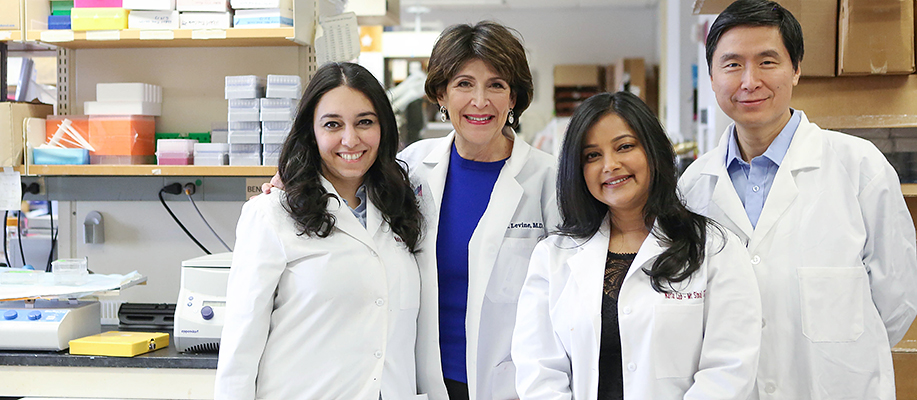 Name: Alice Levine, MD
Name: Alice Levine, MD
Job Title and Institution name: Professor of Medicine and Oncological Sciences in the Division of Endocrinology, Metabolism and Bone Diseases at the Icahn School of Medicine at Mount Sinai Health System, New York.
Description of lab research area/focus: Dr. Levine’s lab current research focus is the development of new therapies for bone metastatic prostate cancer.
Can you provide an overview of your role and responsibilities with the Young Scientist Foundation?
I serve as a mentor for graduate, medical, undergraduate and high school students in a translational research lab that focuses on finding new therapies for advanced prostate cancer.
How long have you been mentoring students?
More than 20 years.

Why is mentorship important for an established researcher?
Our trainees are our future, as scientists and as human beings. I enjoy mentoring students at all levels of training because they each bring something new to the table. Trainees keep faculty young and on their toes and often bring a fresh outlook to research questions. Finally, I enjoy nurturing trainees, encouraging their aspirations and giving them the tools to attain their goals.
Can you describe the mentoring culture of YSF?
The atmosphere at YSF is very collaborative, with all members of any research group acting as a team. The culture at YSF is quite similar to that in my laboratory group in that all members of the team, no matter what level of expertise, are treated as full team members.
Why do you think it is important for students to explore biomedical research as a potential career option? What are some of the rewarding aspects of this career choice?
Biomedical research is the cornerstone of health and healthcare. In medicine there used to be three pillars – clinical care, medical education and biomedical research. However, as the tools for discovery have expanded, biomedical research serves as the foundation for the other two “pillars” – neither clinical care, nor medical education can carry on without the foundation of research. There are many rewarding aspects of a career in biomedical research – the thrill of discovery and the even greater satisfaction when that discovery translates into new approaches to cure diseases and relieve pain and suffering in patients. Mentoring is also one of the joys of a career in biomedical research. Your mentees become your colleagues and then your teachers.

In your opinion, what is a common characteristic trait of students that get admitted to the program?
Curiosity and enthusiasm for the field are the most important traits looked for in applicants.
What is the best way to establish a productive relationship with a student mentee?
As the teachers say, “planning, preparation, performance.” In other words, the longer the lead time prior to an internship in the lab, the more reading and planning up front, the more likely that both the student and the mentor will feel fulfilled by the relationship and the experience. Often times, internships are only for a short period of time (i.e. ten weeks in the summer) and the trainee has little knowledge of the research field or applicable techniques. The only way to overcome this is for the student to meet with the mentor on a regular basis for at least three months prior, be given reading materials, and submit an abstract with background, hypothesis, planned experiments and techniques prior to starting the project.

How do you encourage curiosity in a laboratory environment?
Weekly lab meetings are always interactive. All trainees, no matter what level, are expected to prepare short talks – either journal clubs, or a talk on a specific technique. Active learning is best and nothing makes an individual learn a subject more than having to teach it to colleagues.
In your opinion, what drives breakthrough discovery?
I believe a discovery can originate through a combination of pattern recognition and thinking outside the box. Investigators must believe their data and evaluate it objectively. Sometimes perceived mistakes or results that were unexpected and seem disappointing at first, hold the key to great discoveries, if one keeps an open mind and tries to see the common pattern.
How are you training the students differently so that they excel to become leaders of biomedical research in the future?
From the beginning, students should be encouraged to present at weekly conferences, write up results and teach concepts and techniques to peers and colleagues. That encourages leadership and discourages passivity.

Can you describe your current research projects?
We are developing a new treatment for prostate cancer that has spread to bone. We demonstrated that a secretory phosphatase PAP (prostatic acid phosphatase) plays a causal role in prostate cancer bone metastases and are developing neutralizing antibodies to PAP for treatment of men with bone metastatic disease (currently incurable).
What is your vision for long-term professional trajectory?
To carry out biomedical research that leads to new therapies for patients and to train individuals who will do the same.
Click here to learn more about Alice Levine’s laboratory
http://labs.icahn.mssm.edu/levinelab/
